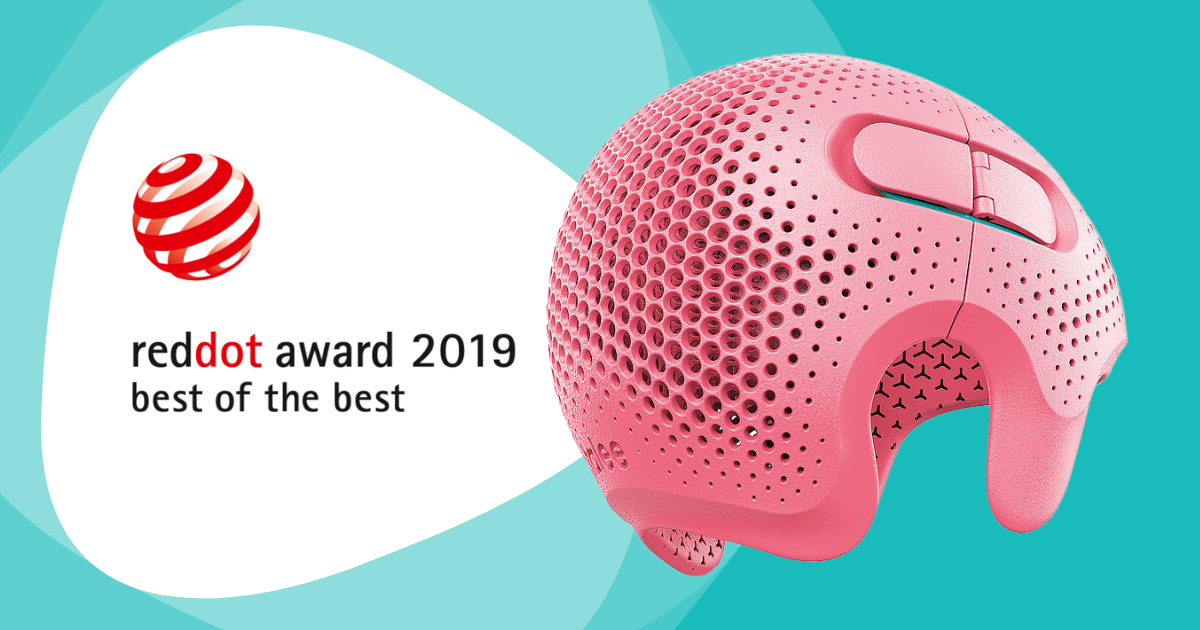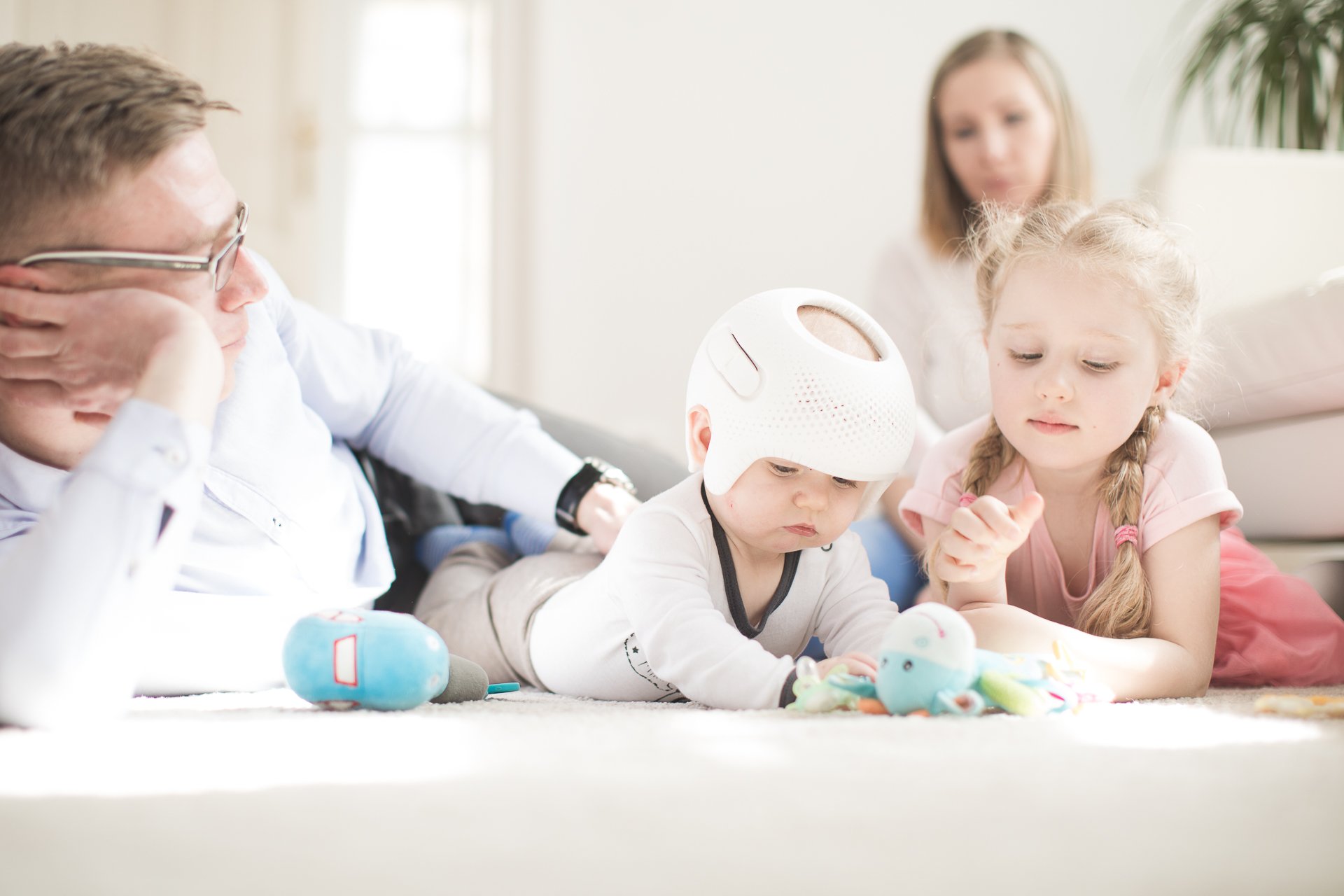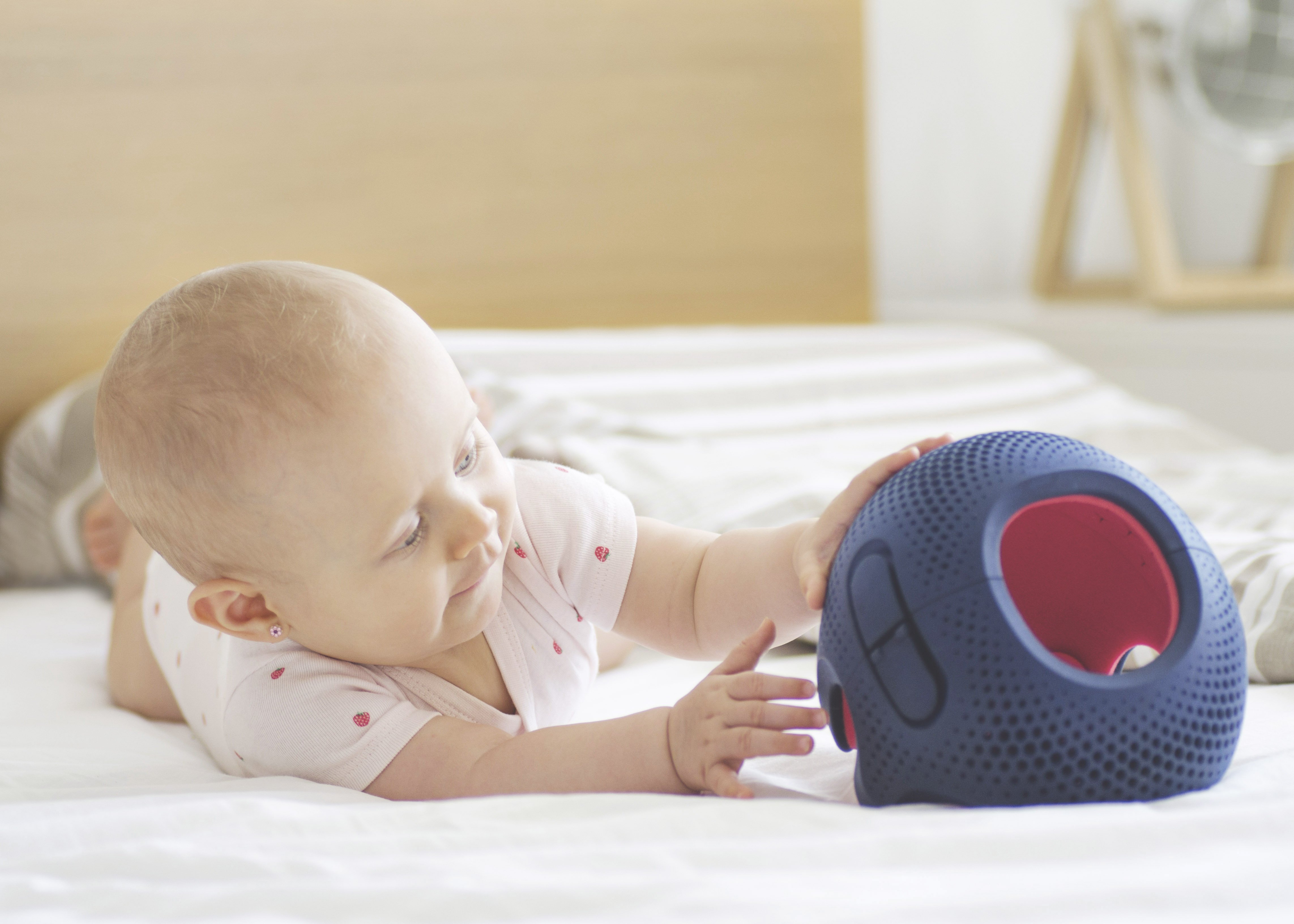
These are all normal concerns, and we firstly want to reassure you that flat head syndrome is nothing to worry about, and can often be treated or prevented quite easily. It is possible to correct as long as it is caught early on, and once treated, it won’t come back.
Are There Any Risk Factors Associated With Having Flat Head Syndrome?

Many parents and researchers question whether flat head syndrome is linked to developmental delays. One particular study looked into this and found that children with a flattening scored lower in developmental tests, than those without a flattening. Although this relationship did not establish a causal relationship, it indicates that there could be a link between flat head syndrome and developmental delays.
Importantly, though, there are both physical and psychological impacts of untreated flat head syndrome. Your child might one day dream to work in the emergency services, construction, or the armed forces, but unable to do so as they cannot fit into a regular helmet. The same applies to leisure activities such as cycling, climbing, and horse riding. They also may not be able to wear certain hairstyles, and insist on keeping their hair long in order to cover up the deformity.
Additionally, having a misshapen head can have a large psychological impact on an individual later in life. Unfortunately, children (and often adults) can be very judgemental when it comes to appearances, and some will treat a peer with an asymmetrical head differently from one who has a more ‘normal’-shaped head. Left untreated, your child could experience psychosocial issues growing up, and perhaps on into adulthood.
Should I Worry About These Side Effects of Flat Head Syndrome Happening to My Baby?
These side effects are very much worst case scenarios that don’t need to come into fruition. When parents notice a flattening on their baby’s head early on, babies’ flat head syndrome can be treated and drastically improved with safe and pain-free methods. This means that your little one has every chance of growing up without a flattening.
How Can My Baby’s Flat Head Syndrome Be Corrected?
Usually, all it takes is a few simple changes in the form of repositioning techniques. By varying the position in which your baby rests their head, you can take the pressure off the affected area so that the skull grows into a more uniform shape. You should always place your baby on their back to sleep, but there are a number of techniques that you could try that will encourage your baby to vary the direction in which the head is facing.
Most of the time, such techniques are all it takes to return the head to a more normal shape. However, for cases where repositioning is started too late or the deformity is severe, further intervention is likely to be required. At Technology in Motion, this is when our expertise and effective treatment option comes in.
If your baby’s head is still noticeably misshapen by the age of four or five months, the only way to correct it is with a cranial remoulding helmet. These specially-made orthotic helmets are worn every day for three to six months, gradually correcting the shape of the skull as it grows. The helmets are safe and pain-free, and have an excellent success rate with permanent results.
In response to questions such as when should I worry about Flat Head Syndrome, the answer is that you really shouldn’t be worried. However, if it is severe and you are concerned about the effect it might have on your child as they grow up, you can book a free pre-assessment with one of our clinicians to find out how severe your baby’s flattening is, and whether repositioning techniques or helmet treatment would be best.


